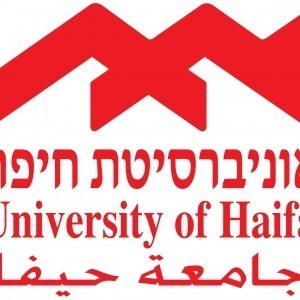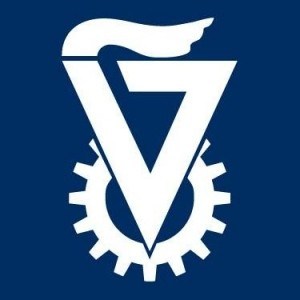Photos of university / #telavivuni
The Bachelor's degree in Digital Culture and Communication at Tel Aviv University offers students an in-depth exploration of the rapidly evolving digital landscape and its impact on modern society. This interdisciplinary program combines insights from media studies, cultural studies, communication sciences, and information technology to provide a comprehensive understanding of digital phenomena. Students will examine the history, theory, and practice of digital media, including social networks, online communities, digital arts, and virtual environments. The curriculum is designed to develop critical thinking and analytical skills, enabling students to assess the societal implications of digital technologies and to participate actively in digital culture creation. Courses cover a range of topics such as digital storytelling, user experience design, cybersecurity, data visualization, and digital policy. Emphasis is placed on hands-on experience with digital tools and platforms, fostering practical skills alongside theoretical knowledge. The program prepares graduates for diverse careers in media production, digital communication, content creation, user experience design, digital marketing, and media consultancy. Students also have opportunities for interdisciplinary research and collaboration with industry professionals through workshops, internships, and projects. The faculty comprises experts from various fields including media, technology, and cultural studies, ensuring a rich academic environment that encourages innovative thinking. Through this program, students will gain a nuanced understanding of how digital media shapes cultural identity, social interaction, and information dissemination in the 21st century. Graduates will be well-equipped to analyze and influence the digital aspects of contemporary culture, making a meaningful contribution to the fields of media, communication, and digital innovation.
- Techno-utopia: Introduction to the Social and Cultural History of the Internet
- Digital Discourse: New Media Language and Dynamics
- Cyber-Knowledge: Information and Deception on the World Wide Web (Not offered in 2014-15)
- Theories in Communication and Digital Media
- Two electives
- Five elective courses
- Seminar
Requirements
- Online application
- Official high school diploma and transcript. Applicants in their final year of high school may submit a partial transcript. Their admission process will be complete once the final transcript and diploma are received.
- Results of the Scholastic Aptitude Test (SAT) or American College Test (ACT). These are only required for applicants graduating from a U.S. high school system, whether in the U.S. or abroad. TAU's SAT code is 0810, and our ACT code is 5517. Applicants who attended non-U.S. high schools should submit the results of analogous nationally administered tests.
- Two letters of recommendation from principal, teacher, guidance counselor, or others who are able to comment on the applicant’s academic abilities. Please ask your referees to submit their evaluations via email or through our online form.
- One personal essay (300-500 words)
- TOEFL or equivalent proof of English language proficiency - This is only required of graduates of high schools in which English was not the primary language of instruction. TAU's TOEFL code is 7704.
- A mandatory Health Declaration signed by the applicant and an additional witness.
- A signed medical form with a physician's approval.
The financing options for the Digital Culture and Communication program at Tel Aviv University are designed to support a diverse range of students through various scholarships, grants, and financial aid packages. Prospective students are encouraged to explore the university’s official financial aid portal to obtain detailed and up-to-date information regarding available support. The university offers merit-based scholarships for outstanding students demonstrating academic excellence, which can significantly offset tuition costs. Additionally, need-based grants are available to students who demonstrate financial need, ensuring that qualified individuals from various economic backgrounds have access to higher education. International students may also be eligible for specific scholarships aimed at fostering global academic exchange and diversity within the program.
Furthermore, students can take advantage of work-study opportunities, internships, and part-time employment arrangements both on and off-campus, which provide financial benefits while gaining practical experience related to their studies. The university collaborates with various organizations and industry partners to offer funded projects, research assistantships, and teaching assistant positions that help defray educational expenses. In some cases, students may also seek external funding through government-sponsored loan programs or private foundations dedicated to supporting higher education in the fields of digital culture and communication.
Students are advised to meet with financial aid advisors regularly to navigate the application process for scholarships and grants, as well as to explore tailored financial planning options. The university’s support system aims to ensure that financial considerations do not hinder qualified students from pursuing their academic and professional goals in Digital Culture and Communication. Overall, the program’s funding framework prioritizes accessibility and inclusiveness, reflecting Tel Aviv University’s commitment to fostering innovation and diversity in digital studies.
Accommodation in dormitories
- $4,800 for the standard 8-month academic year
- $3,000 for the spring semester.
Students who pursue courses of a longer duration (such as English Literature courses or courses taught in Hebrew) will be charged additional fees for their extended stay in the dorms.
Important notes
- A non-refundable $100 application fee is not included above.
- Accepted students will be asked to pay a confirmation fee to guarantee their spot in the program.
- Trips, Student Activities, Facility Fees and Health Insurance are all included in the tuition fees quoted above.
- Study of the Hebrew language (Ulpan) is highly recommended and involves an additional fee.
- There is a replacement charge of $10 for lost student ID card, medical insurance card, or room keys.
Tuition includes excursions, activities, facility fees, and health insurance.


